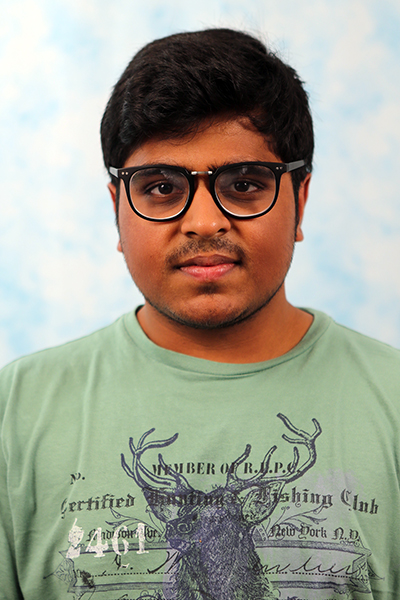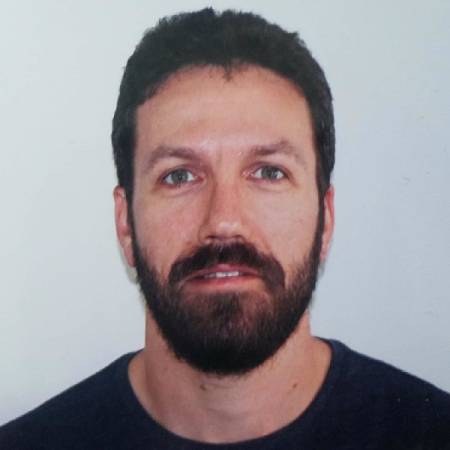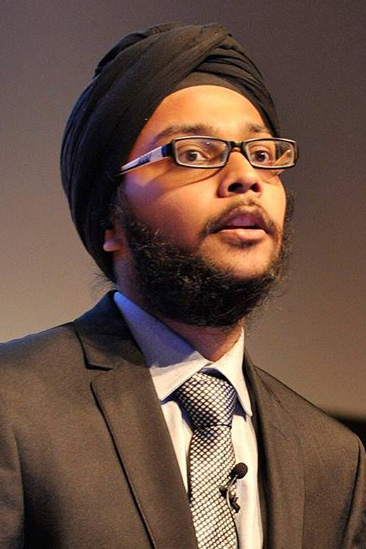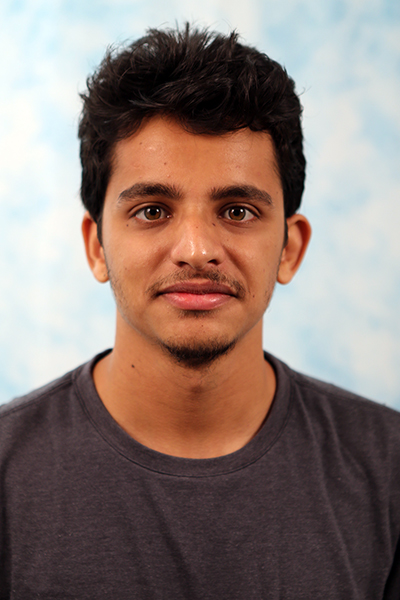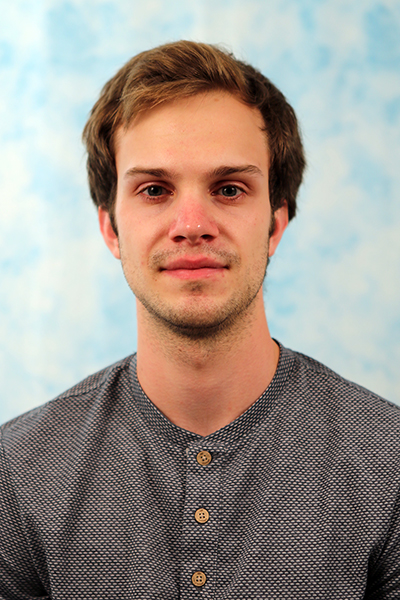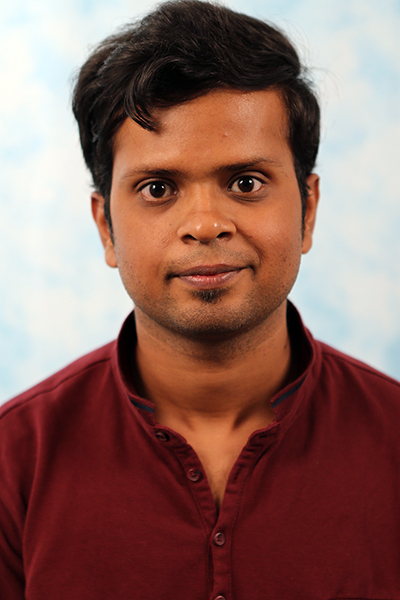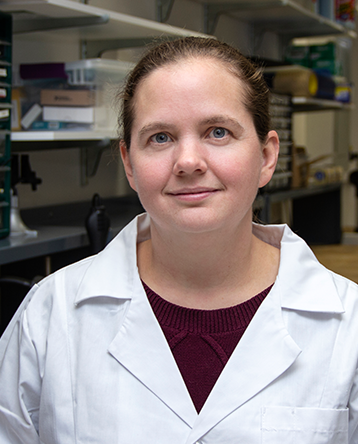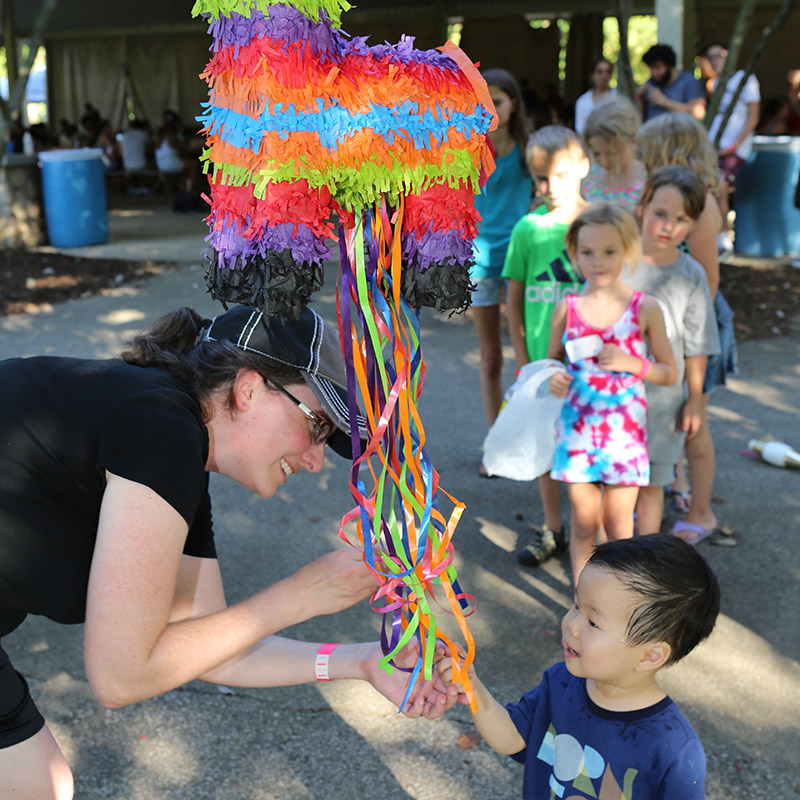Carnegie Mellon University
MSR Thesis Talk – Naman Gupta
Title: State Estimation for Legged Robots using Proprioceptive Sensors Abstract: Mobile robots need good estimates of their state to perform closed-loop control in structured and unstructured environments. A number of existing algorithms rely on data fusion from multiple sensors to compute these estimates. This work focuses on state estimation using sensors which only measure [...]
Exploiting Deviations from Ideal Visual Recurrence
Abstract: Visual repetitions are abundant in our surrounding physical world: small image patches tend to reoccur within a natural image, and across different rescaled versions thereof. Similarly, semantic repetitions appear naturally inside an object class within image datasets, as a result of different views and scales of the same object. We studied deviations from these [...]
Carnegie Mellon University
MSR Thesis Talk – Harjatin Baweja
Title: Leveraging Computer Vision and Reinforcement Learning for contact and non-contact based plant phenotyping. Abstract: Effective plant breeding requires scientists to find correspondences between genetic markers and desirable physical traits (phenotypes) of the genotype. Robotics can aid the acceleration of breeding pipeline by facilitating high throughput plant phenotyping. In this thesis we propose [...]
Carnegie Mellon University
MSR Thesis Talk – Suhit Kodgule
Title: Active Sampling for Planetary Rover Exploration Abstract: Planetary Robotics research has expanded beyond simply developing robust navigation strategies for rovers to providing them with the capability of performing intelligent actions so as to develop a better interpretation and understanding of the environment. This will become essential in the future, when rovers explore regions far [...]
Attending to Pixels, Embedding Pixels, Predicting Pixels
Abstract: Nowadays splashy applications heavily depend on meticulously annotated datasets, data-driven and learning-based methods, among which pixel labeling plays an important role yet often lacks interpretability. In this talk, I will discuss how we deal with pixels with better interpretability. Firstly, I'll introduce the pixel embedding framework that allows for clustering pixels into discrete groups [...]
Carnegie Mellon University
Matthew Collins – MSR Thesis Talk
Title: Efficient Planning for High-Speed MAV Flight in Unknown Environments Using Sparse Topological Graphs Abstract: Safe high-speed autonomous navigation for MAVs in unknown environments requires fast planning to enable the robot to adapt and react quickly to incoming information about obstacles within the world. Furthermore, when operating in environments not known a priori, the robot [...]
Carnegie Mellon University
MSR Thesis Talk – Siva Chaitanya Mynepalli
Title: Recognizing Tiny Faces Abstract: Objects are naturally captured over a continuous range of distances, causing dramatic changes in appearance, especially at low resolutions. Recognizing such small objects at range is an open challenge in object recognition. In this paper, we explore solutions to this problem by tackling the fine-grained task of face recognition. State-of-the-art embeddings [...]
Carnegie Mellon University
Data Centric Robot Learning
Abstract: While robotics has made tremendous progress over the last few decades, most success stories are still limited to carefully engineered and precisely modeled environments. Getting these robots to work in the complex and diverse world that we live in has proven to be a difficult challenge. Interestingly, one of the most significant successes in [...]
Automatically Supervised Learning: Two more steps on a long journey
Abstract: I will talk about two recent pieces of work that attempt to move towards learning with less reliance on labeled data. In the first, part, I will talk about how the surrogate task of predicting the motion of objects can induce complex representations in neural networks without any labeled data. In the second part of [...]
Carnegie Mellon University
Exploiting Point Motion, Shape Deformation, and Semantic Priors for Dynamic 3D Reconstruction in the Wild
Abstract: With the advent of affordable and high-quality smartphone cameras, any significant events will be massively captured both actively and passively from multiple perspectives. This opens up exciting opportunities for low-cost high-end VFX effects and large scale media analytics. However, automatically organizing large scale visual data and creating a comprehensive 3D scene model is still [...]
Carnegie Mellon University
Learning and Reasoning with Visual Correspondence in Time
Abstract: There is a famous tale in computer vision: Once, a graduate student asked the famous computer vision scientist Takeo Kanade: "What are the three most important problems in computer vision?" Takeo replied: "Correspondence, correspondence, correspondence!" Indeed, even for the most commonly applied Convolutional Neural Networks (ConvNets), they are internally learning representations that lead to [...]
Geometric Deep Learning for Perceiving and Modeling Humans
Abstract: Perceiving and modeling shape and appearance of the human body from single images is a severely under-constrained problem that not only requires large volumes of data, but also prior knowledge. In this talk I will present recent solutions on how deep learning can leverage on geometric reasoning to address tasks like 3D estimation of [...]
Carnegie Mellon University
Forecasting and Controlling Behavior by Learning from Visual Data
Abstract: Achieving a precise predictive understanding of the future is difficult, yet widely studied in the natural sciences. Significant research activity has been dedicated to building testable models of cause and effect. From a certain view, a perfect predictive model of the universe is the “holy grail”; the ultimate goal of science. If we had [...]
Human-Level Learning of Driving Primitives through Bayesian Nonparametric Statistics
Abstract: Understanding and imitating human driver behavior has benefited for autonomous driving in terms of perception, control, and decision-making. However, the complexity of multi-vehicle interaction behavior is far messier than human beings can cope with because of the limited prior knowledge and capability of dealing with high-dimensional and large-scale sequential data. In this talk, I [...]
Carnegie Mellon University
Town Hall with RI Director and RI Graduate Students
Dr. Srinivasa Narasimhan, the Interim Director of The Robotics Institute, would like to meet all of RI’s graduate students. Please join him for a Town Hall meeting at 1pm in Rashid Auditorium on Friday Aug 30!
Formalizing Teamwork in Human-Robot Interaction
Abstract: Robots out in the world today work for people but not with people. Before robots can work closely with ordinary people as part of a human-robot team in a home or office setting, robots need the ability to acquire a new mix of functional and social skills. Working with people requires a shared understanding [...]
Knowledge Transfer Graph for Deep Collaborative Learning
Abstract: In this talk I will present our latest research about knowledge transfer graph for Deep Collaborative Learning (DCL), which is a method that incorporates Knowledge Distillation and Deep Mutual Learning. DCL is represented by a directional graph where each model is represented by a node, and the propagation of knowledge from the source node to the [...]
AI in Space – From Earth Orbit to Mars and Beyond!
Abstract: Artificial Intelligence is playing an increasing role in our everyday lives and the business marketplace. This trend extends to the space sector, where AI has already shown considerable success and has the potential to revolutionize almost every aspect of space exploration. We first highlight a number of success stories of the tremendous impact of [...]
Microsystems-inspired robotics
Abstract: The ability to manufacture micro-scale sensors and actuators has inspired the robotics community for over 30 years. There have been huge success stories; MEMS inertial sensors have enabled an entire market of low-cost, small UAVs. However, the promise of ant-scale robots has largely failed. Ants can move high speeds on surfaces from picnic tables [...]
